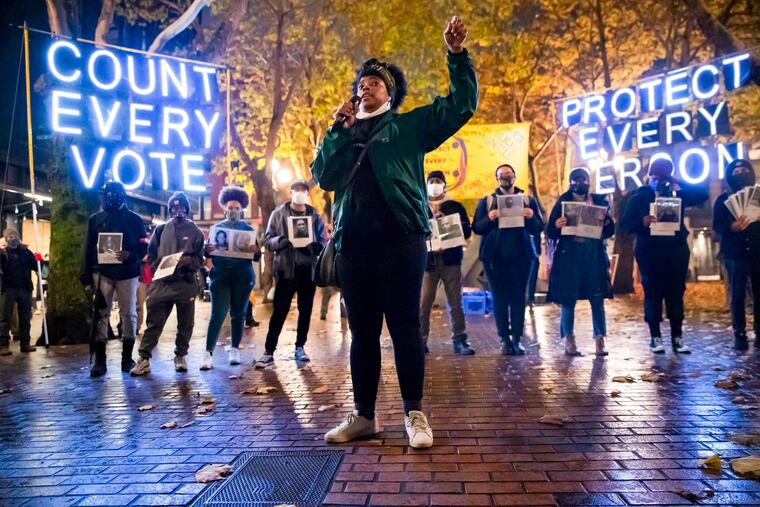The voter suppression crisis no one is talking about | Opinion
If we fail to vote, and vote wisely, we all will have to ask ourselves — are we ushering in our own subjugation?

History textbooks proudly showcase the United States’ expansion of voting rights. After successfully battling for independence, white landowning men were given the right to vote, followed by African American men (1870), women (1920), Native Americans (1924), and youth 18 and older (1971).
Yet our country’s darker impulse has been to keep political power safely ensconced in white wealthy men. Founding Father James Madison bemoaned the conflict: “Allow the right [to vote] exclusively to property [owners], and the rights of persons may be oppressed. ... Extend it equally to all, and the rights of property [owners] ... may be overruled by a majority without property ...”
This illiberal urge has given rise to two and a half centuries of suppression tactics. Older strategies — poll taxes, literacy tests, terroristic threats — have given way to modern methods such as limiting early voting, lack of access for those who don’t speak English, closure of polling places, and oversight from partisan election officials.
» READ MORE: Pa. Republicans started their ‘forensic investigation’ of the 2020 election. It’s still unclear what that means.
One indicator of how these suppression efforts have succeeded is our low voting rate.
According to the Pew Research Center, the U.S. places 30th out of 35 for voter turnout among the most developed nations. Last year, voter turnout increased in every state when an estimated 158 million Americans, about 67% of eligible voters, voted. This was the highest turnout in over a century, with 20 million more votes cast than in 2016. But even with this historically high turnout, the U.S. still lags behind its peer countries.
But that success triggered a backlash that is still roiling the country.
After the election, 78% of former President Donald Trump’s voters called the election unfair. Voter suppression laws have been introduced in 48 states under the guise of protecting the people from voter fraud. National voter rights organizations are pushing back, but in the short term, trust in the political process will further erode and turnout will be reduced.
These are the actions that get our attention, but there are equally effective but subtler forms of voter suppression that remain ignored by activists, unreported by journalists. Where traditional voter suppression efforts adversely impact people of color, these subtler tactics quiet us all.
One is our turning away from facts and reason because a robust democracy needs educated voters. Instead of reason, voters are being driven to emotional extremes. “[T]he position of the GOP today toward principles of liberal democracy is relatively extreme, closer to authoritarian populists such as Spain’s Vox, the Netherlands’ Party for Freedom and the Alternative for Germany, rather than mainstream conservative and center-right parties. By contrast, the Democrats are estimated to be more similar to many moderate parties within the mainstream center-left,” explained Harvard University political science professor Pippa Norris.
» READ MORE: Radicalizing the vote: 10 ideas that just might save democracy | Opinion
Another way the democratic voice is silenced is when elected officials, once in office, fail to represent the will of the people. About half of us think that there is little we can do to influence what happens in Washington, D.C. It is a small step from feeling powerless to disengaging in the voting process.
Finally, democracy withers when civic life dies. Alexis de Tocqueville wrote that it was civic associations that undergirded America’s democracy. A 2011 report on the civic health of Pennsylvania from the National Conference on Citizenship showed the state ranked in the lower third on about all measures of political action and was ranked last in terms of the frequency that the commonwealth’s citizens discussed politics with family and friends.
Democracy is America’s secular religion, and its tenets have held us together as Americans, even as it has failed so many of us. University of Pennsylvania political scientist Rogers Smith argued that America is created out of this constant struggle, but added, “When you create a constitutional democracy, you transform the political identity of its members from subjects to citizens.”
September is National Voter Registration Month, and there will be well-intentioned drives to get hesitant people to the polls. If we fail to vote, and vote wisely, we all will have to ask ourselves — are we ushering in our own subjugation?
Chad Dion Lassiter is executive director of the Pennsylvania Human Rights Commission.